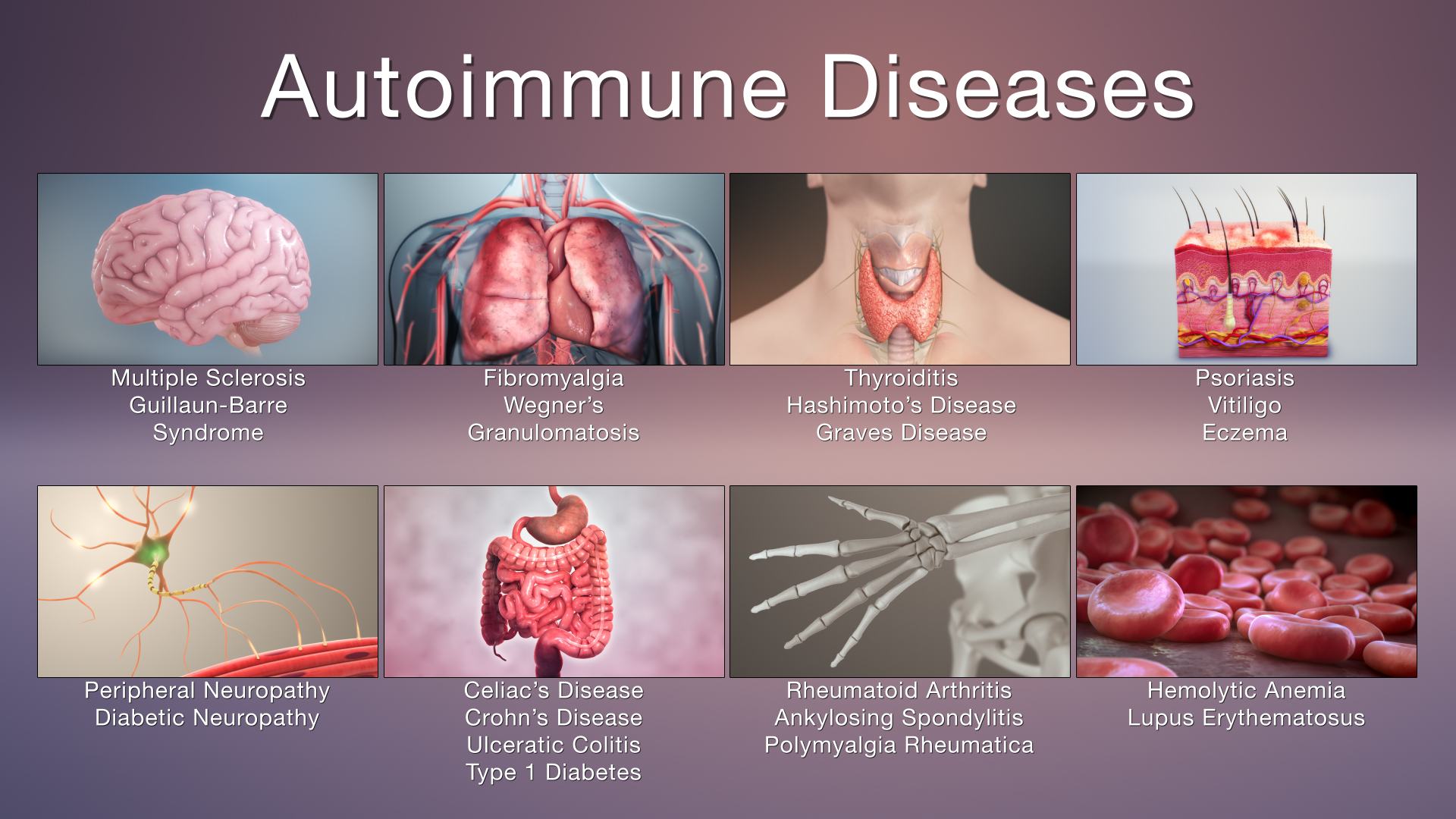Immune system diseases result in irregular low or over activities of the immune system.

In such cases, the body often attacks and damages its own tissues. Immune deficiency diseases reduce the body's ability to battle invaders, resulting in vulnerability to infections.
In response to an unfamiliar trigger, the immune system may start producing antibodies that instead of working against infections, start attacking the body's own tissues.
There are over 80 various autoimmune diseases. Here are few of the most common ones:
- Rheumatoid arthritis (RA)
- Systemic lupus erythematosus (SLE)
- Inflammatory bowel disease
- Multiple sclerosis
- Type 1 diabetes
- Celiac disease
- Myasthenia gravis
- Psoriasis
- Graves’ disease
and more.
Autoimmune disease symptoms
The early symptoms of various autoimmune diseases are quite similar, such as:
- Fatigue
- Ache in muscles
- Swelling
- Low-grade fever
- Redness
- Skin rashes
- Numbness and tingling in the hands and feet
- Loss of hair
- Trouble in concentrating
Individual diseases could have their own unique symptoms as well.
Treatments
Treatments can’t usually cure autoimmune diseases, however, they can help control the overactive immune response and decrease inflammation or reduce pain. Some of the drugs used to treat these conditions include:
- Nonsteroidal anti-inflammatory drugs (NSAIDs)
- Immune-suppressing drugs
Some treatments are also available to alleviate symptoms such as pain, inflammation, skin rashes and fatigue.
One should consider consuming well-balanced diet and performing regular exercise may also aid you feel better.
Over 80 various autoimmune diseases exist. Quite often their symptoms overlap, making them difficult to diagnose.
Autoimmune diseases are more common in women, and they usually run in families.
Disclaimer: The information in no way constitutes, or should be construed as medical advice. Nor is the above article an endorsement of any research findings discussed in the article an endorsement for any of the source publications.
Sources-
- https://www.webmd.com/a-to-z-guides/autoimmune-diseases
- https://www.healthline.com/health/autoimmune-disorders#symptoms
The inner surface of human cells are lined with phospholipids. Cell membrane damage due to infectious disease can sometimes release these phospholipid molecules. Antiphospholipids are produced as immune response which also results in an increased rate of blood clotting and blood thickening. Antiphospholipid syndrome (APS) results from an overactive immune response post an infectious disease.
Read More..
Deep vein thrombosis is a condition that occurs when a blood clot develops within a vein that is located deep in the body. Deep Vein Thrombosis (DVT) usually occurs in the veins in the thigh, lower leg, calf or pelvis, but could occur in some other part of the body too.
Read More..











